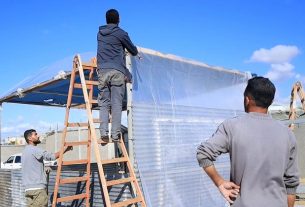YAOUNDÉ, Oct. 24, 2025 — Cameroon is facing a deepening political crisis after the National Vote-Counting Commission declared President Paul Biya, age 92, the provisional winner of the October 12 presidential election with 53% of the vote. The announcement has been formally contested by opposition candidate Issa Tchiroma Bakary, who claims victory in 18 key administrative units and has presented documented evidence of irregularities.
The dispute has triggered protests, internet shutdowns, and media censorship, while civil society groups—including the Project C Movement—have issued urgent appeals to the Constitutional Council, which holds the final authority to validate the election under Article 47 of Cameroon’s Constitution.
A Call to Conscience
In a powerful open letter, Project C urged Council members to uphold their constitutional duty, stating:
“This is not a ceremonial role, nor a formality to be carried out regardless of circumstance. It is a constitutional duty… Your actions at this moment will shape the legacy of your tenure and the course of our nation.”
The letter cites Article 113 of the Electoral Code, which mandates that polling station results be made public immediately after counting. Citizens across Cameroon have shared photographic and video evidence of local tallies that appear to contradict the aggregated national results.
Project C called for:
- A comparison of official results with publicly documented evidence
- An independent audit with international observers
- A delay in validation until discrepancies are resolved
- A dissenting opinion or resignation from Council members unable to endorse the results in good conscience
Opposition Rejection and Allegations
Bakary has rejected the provisional outcome, alleging vote manipulation, intimidation, and a post-election offer of a ministerial position, which he declined. He has called for peaceful resistance, warning that the legitimacy of Cameroon’s democracy is at stake.
Civil Unrest and Religious Appeals
Protests have erupted in Yaoundé, Garoua, and other cities, with security forces deploying tear gas and detaining demonstrators. Meanwhile, Bishop Emmanuel Abbo of the Catholic Diocese of Ngaoundéré has urged calm and dialogue, warning against political manipulation and calling for a resolution that reflects the people’s will.
International Scrutiny
Global observers are closely watching the Constitutional Council’s next steps. The letter from Project C references Kenya’s 2017 Supreme Court decision to annul a presidential election due to irregularities, framing it as a precedent for judicial courage in Africa.
“Twenty-eight million Cameroonians, and countless generations yet unborn, are watching,” the letter concludes. “Will you be the Council that finally said ‘no’ to illegitimacy and ‘yes’ to the Constitution?”
Summary: Cameroon’s disputed presidential election has triggered unrest and a constitutional reckoning. As opposition leader Issa Tchiroma Bakary contests the results and civil society demands transparency, the Constitutional Council faces a historic decision. With the international community watching, the integrity of Cameroon’s democracy hangs in the balance.
Yaounde-Cameroon-Skyline-Picture-by-Kateregga1



